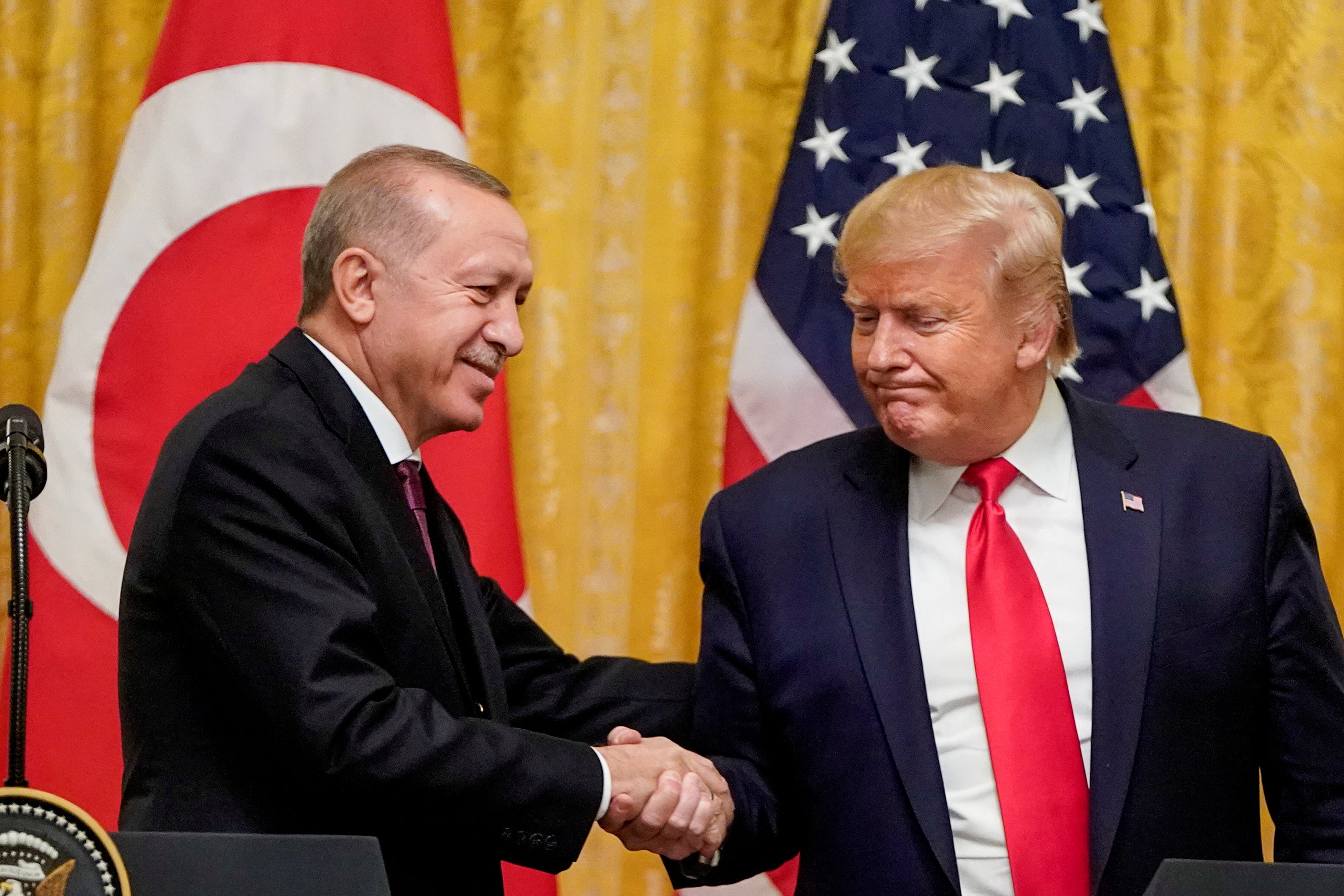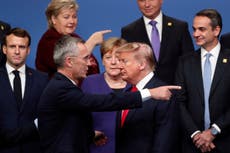With friends like these: US and EU leaders set to slap Turkey with sanctions
Nato allies are toughening their stance and punishing Turkey over its regional ambitions

Turkey is facing sanctions from its own allies, with the United States and the European Union set to punish Ankara in a sign of growing pushback against its regional ambitions.
The sanctions are over its purchase of Russian weapons and its moves to conduct energy exploration in disputed eastern Mediterranean Sea waters.
The EU has moved to place financial constraints on an unknown number of officials, companies and vessels involved in sea expeditions in search of subterranean oil and gas reserves. But a statement issued early on Friday by EU leaders underscored broader discontent over Turkey’s recent global posture, saying it had “engaged in unilateral actions and provocations and escalated its rhetoric against the EU”.
Officials in Washington meanwhile say the White House is set to move forward on long-delayed congressionally mandated sanctions targeting the Turkish defence industries chief, Ismail Demir, over Ankara’s purchase of Russian S-400 anti-aircraft missile systems that are said to interfere with the operation of Nato weaponry, and prompted Turkey’s removal from the programme to obtain advanced US F-35 stealth fighter jets.
By themselves, the sanctions are relatively mild. But taken together, they put added pressure on the Turkish economy by frightening off potential foreign investors that are crucial to creating jobs, replenishing Ankara’s depleted cash reserves, and easing debt and inflation burdens.
The Turkish currency, the lira, slipped more than 1.5 per cent on reports of the impending sanctions. It is down 25 per cent this year, among the worst in emerging markets.
Speaking on Friday to members of his Justice and Development Party (AKP), President Recep Tayyip Erdogan denounced the measures as unfair steps brought about by “anti-Turkey lobbies” and called for dialogue to resolve differences.
“The sanctions agenda, which is politically motivated and baseless, is an approach that only leads to damage on all sides, without any benefit and profit to anyone,” he was quoted in statements broadcast live on television. “As Turkey, we have not taken any step that would harm the spirit of those relations and we will not do so. Similarly, our doors are open wide to all investors.”
But he also praised European officials for using “common sense” and not imposing harsher measures.
Under pressure from France, Greece and Cyprus, the EU announced late Thursday it would recommend sanctions on Turkey over its maritime exploration endeavours in what Greek and Cypriot officials consider their exclusive waters. Gas reserves discovered beneath the eastern Mediterranean seabed are worth billions of dollars.
Tensions between Turkey and fellow Nato partners have escalated in recent years. Ankara accuses other western powers of supporting Kurdish forces in Syria with strong ties to separatist groups in Turkey. It has also had long-standing grievances with Greece and Cyprus over maritime delineations in the eastern Mediterranean and the Aegean Sea, where an archipelago of Greek islands draw near to Turkey’s mainland.
Ankara has also taken part in recent wars in Syria, Libya and the Caucasus, often finding itself at odds with the aims of other western nations.
But EU members eager to push for tough measures against Ankara were reportedly thwarted by Germany, which hosts millions of Turkish migrants, and Bulgaria, which shares a border with Turkey.
Turkey’s controversial purchase of the Russian S-400 anti-aircraft system triggered US sanctions under the Countering America's Adversaries Through Sanctions Act, which imposes penalties on purchases of weapons from the Russian defence industry. Mr Trump, with personal ties to Mr Erdogan, has been reluctant to impose the sanctions. But they were included as part of a broad bipartisan defence spending package approved by lawmakers.
The incoming administration of President-elect Joe Biden is said to be far more willing to confront Turkey over its perceived belligerent moves. But experts have cautioned that pushing Turkey too hard could play into the hands of Russia and China by forcing Ankara to embrace the west’s Eurasian rivals.


Join our commenting forum
Join thought-provoking conversations, follow other Independent readers and see their replies
Comments